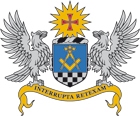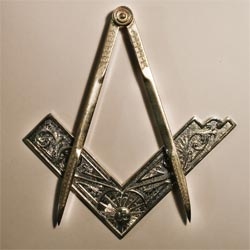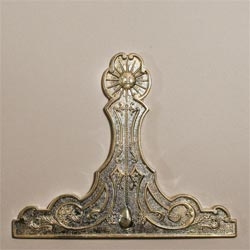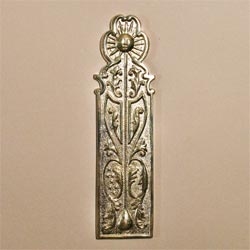Answering the age-long question “What is Freemasonry” it is essential to be aware of the Masonic brotherhood as an amalgamation of an idea, a fellowship and a symbol. This kind of versatility facilitates expression of different human strivings. Some Freemasons attach the highest value to spiritual contacts others cherish the fraternal relationships within the Lodge while still others think that the most important is adherence to traditions and symbols. However only the interaction among the above three elements ensures a complete and full-blooded expression of Freemasonry.
- Who can become a Freemason?
In the course of time, many people discover that life in a modern world does not leave a lot of time for family, society and themselves as individuals. They believe that such underlying principles of the human society as honesty, helping others and having an open mind may be gradually lost in the epoch of growing alienation and cynicism.
Freemasons uphold a view that the above principles are absolutely critical for building of congenial, responsive and honest society. They postulate a society where people are united in faith and trust, capable of integrity and chivalry and consequently they call upon like-minded people to join in building of such society.
To become a Freemason and be accepted for initiation to the regular Freemasonry a successful candidate must possess at least the following minimum qualities:
-
must be a man intending to join Freemasonry on his own free will;
-
must believe in a Supreme Being (a more detailed understanding of which is left at every candidate’s own discretion);
-
must be at least 21 years old;
-
must uphold high moral standards and be of good repute;
-
must have a clear mind and must be in full possession of one’s mental faculties;
-
must be a free man of good name.
- Is Freemasonry a Secret Organization?
No, Freemasonry is a closed organization. The concept of secret plays an important role in Freemasonry first and foremost as a philosophical and symbolic category.
A Masonic organization is a registered society, duly entered in Commercial Register of Latvia. Its history, substance, objectives, constitution and names of the main officers are made public. Even some rites have been made public at some stage. Despite that, Freemasons keep the details of their rites and rituals a secret. Secrecy protects the spiritually-emotional experience and fosters mutual trust.
The present status of Freemasonry in society obliges the Masonic Lodges to explain their Masonic identity in public. Assertive publicity of Freemasonry has three following tasks:
-
overcome prejudice and disseminate information in public at large,
-
create an opportunity for Lodges to make spiritual and social contacts with people outside Lodges,
-
contact persons seeking opportunity to become Freemasons.
On the other hand, up to this day despite separate calls for complete openness it is prohibited to circulate information on rite practices and internal matters of the Freemasons. Existence of matters unavailable for public debate is however accepted by the society. Giving them up would deprive Freemasonry of not only its integral part. That would make Freemasonry betray its principles and jeopardize its internal unity, which is based on silence and trust.
- What are secrets of the Freemasonry?
Why secrets if we have nothing to conceal?
Freemasons insist on traditional keeping of secrets as purely symbolic token. The exchange of Masonic secrets is envisaged as a symbolic trial of honesty and trustworthiness of the candidates. Symbolic secrecy demonstrates to the candidate apprentice the importance of belonging to a circle which can keep promises.
- Why cannot People from Outside visit Lodges and participate their Work?
Lodges are closed to visitors from outside. Freemasons stick to this tradition already for centuries and no compromises are unfortunately offered.
- Can Women join?
In accordance with traditions of Freemasonry the Lodges within the fraternity of Grand Lodge of Latvia do not enrol women. At the same time, in some parts of the world there are Masonic Lodges reserved exclusively for women who also actively practice in Freemasonry and foster its traditions.
- What are the Symbols of Freemasonry?
The underlying symbols of Freemasonry are Volume of Sacred Law, Square and Compasses. They remind a Freemason of human ethical duties, solidarity with his fellowmen and relationship with eternal values. Freemasonry does not impose any religious symbols – they are completely up to the creed of each separate brother.
Freemasonry builds on the simple concept that in order to upkeep certain spirits of the soul, sentient images are needed. For this purpose, Freemasons use a number of symbols and symbolic rituals having specific names which should not be understood in a direct sense. For instance, under Volume of Sacred Law we understand the Bible. However in this sense it should not be interpreted as the revelation of God or message of the human history but as an aggregate symbol of moral values and norms.
Through ritualistic building of a Temple, Freemasonry creates a unique space of inner peace and contemplation so often lacking for a modern man. It should be stressed that ceremonial works at the Temple are capable of influencing both, emotional and rational domains of a human being. Actions, words and music are amalgamated into a single harmony.
- What is the Oath of a Freemason?
This is a part of the Freemasons’ centuries’ old heritage. Nowadays it has but a symbolic meaning. Its text however has remained unchanged and it springs a striking surprise on many member candidates.
- Is it a Religion and what is the Attitude of Freemasons towards Religion?
Through awareness of common values and symbols Freemasonry unites people with multitude of world views and religions. Adherence to some or other religious faith does not interfere with membership in Freemasonry. On its turn, Freemasonry is neither a religion nor a church.
The rite of Freemasonry offers spiritual experience above and outside everyday life. However this phenomenon is neither supernatural nor magical but psychological. Freemasonry is underpinned by religion as far as it traditionally uses concepts explaining the role of human being in the world and its relationships with the eternal. Despite that it is not a religion. It does not cradle any dogma and allows for a free expression of any individual creed. Freemasons belonging to some church do not meet with any restrictions of their faith in the Lodge and their close connections with otherwise-minded people do not shatter the foundations of it. To ensure that religious discussions in Lodges are not permitted.
Both, Freemasonry and the Church are concerned with spiritual values. Despite that, Freemasonry does not compete with the Church. At the same time, it should be noted that all Freemasons not belonging to a Church, can satisfy their longing for the cult ceremony in the Lodge. The Grand Lodge of Latvia represents the part of Freemasonry that accepts any spiritual orientation and pays attention only to people’s worldly matters.
Contrary to religion, Freemasonry does not offer a detailed description of the causes, nature or purpose of our existence. Neither does it show a way to resurrection or enlightenment. Notwithstanding that it requires its members to believe in the fundamental uniting principles of the Universe, at the same time it prohibits petty discussions or detailed deliberations of this faith.
Freemasonry encourages tolerance and mutual understanding. Imposing no restrictions of faith, Freemasonry involves people who attribute themselves to Christians, Muslims, and Buddhists, Judaists or other creeds.
- Are Freemasons Involved in Politics?
Freemasons refrain from formulating any political programs and do not get involved in party political struggles. A Lodge must be a place where information and joint contemplation help to bring about wilful individual activity. Freemasons of the Grand Lodge of Latvia carry out their important task of enlightenment overcoming pre-conceptions, following Zeitgeist and seeking truth together.
- Is there a “World Conspiracy” of Freemasons or any other Secret Agreement?
Actually it is even politically incorrect to insinuate that Freemasonry might be used for corporate support of actions contradictory to fair dealings of an honest person let alone acts falling foul of the law or loyalty to one’s country.
It is constantly underlined that Freemasons should first and foremost be law-abiding citizens in the country where they reside and, confronted with the choice, must always obey laws and regulations of the particular state which are of supreme hierarchy to the laws of Freemasonry.
Freemasonry has no global leading organization of its own. As far as Freemasonry is concerned, every country and territory is independent, fully autonomous and self-regulating. The Grand Lodge of each country is the supreme Freemasonry organization there. No other Grand Lodge or organization can charge it with duties, give directions or even advice.
Up to the core, Freemasonry is a voluntary organization grounded on unremitting altruistic efforts of its members and time invested by them which they have spared from their free time. Given the national spirit of Freemasonry, patriotism as regards own country and non-existence of a common (global) management, no ‘secret rule’ is possible in any form.
- How Many Grades are there in Freemasonry?
There are 3 basic grades.
- What is the Irregular or Clandestine Freemasonry?
Regularity is a constitutional mechanism whereby Grand Lodges or Grand Orients give one another mutual recognition. This recognition allows formal interaction at the Grand Lodge level, and gives individual Freemasons the opportunity to attend Lodge meetings in other recognised jurisdictions. Conversely, regularity proscribes interaction with Lodges that are irregular. A Mason who visits an irregular Lodge may have his membership suspended for a time, or he may be expelled. For this reason, all Grand Lodges maintain lists of other jurisdictions and lodges they consider regular.
- What it Means and Costs to be a Freemason?
It means gradual approach to epiphany through learning the language and meaning of symbols. Freemasonry and its Secret is not something that can be described – it should be learned and acquired through experience.
The sole source of income for Lodges is voluntary donations by their members as well as their contributions earmarked for specific measures.



